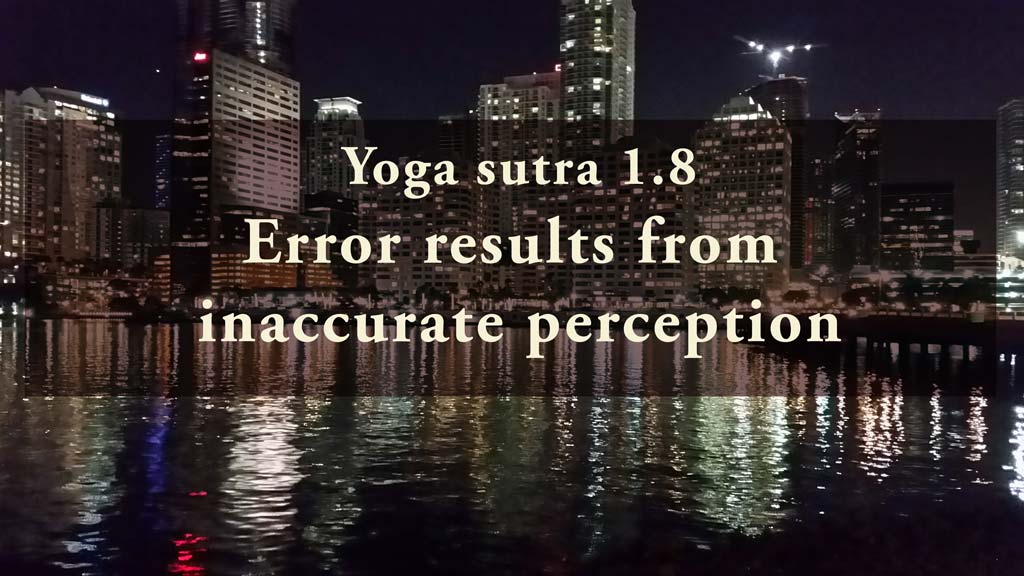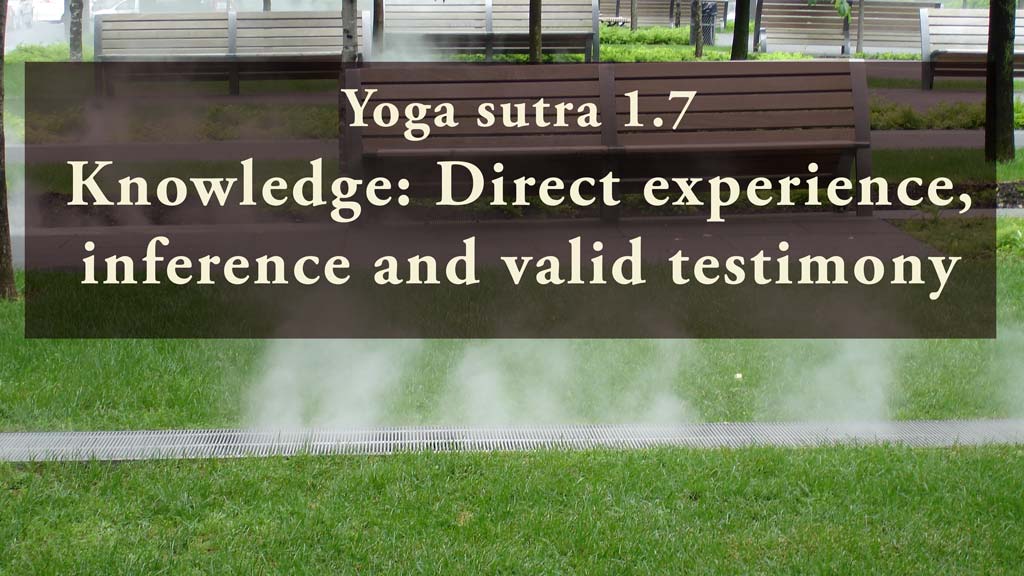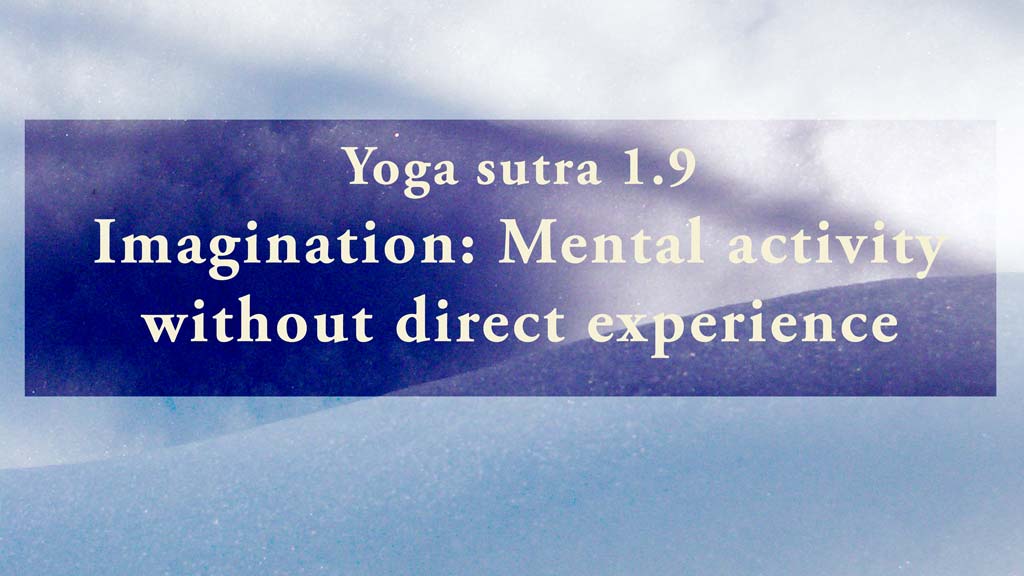1.8 Error


Yoga Sutra 1.8 Error (viparyaya) results from inaccurate perception.
The next way of being is to be mistaken, or to be in error. As explained in verse 1.4, not knowing your true nature causes you to perceive yourself as the temporary phenomena coming and going through your internal systems. As a result, you might get entangled in an endless cycle, either chasing after some experiences that you like, or by pushing away what you dislike. Another typical manifestation of misperception is lack of awareness of the gap between what you are doing and what you think you are doing, such as when you claim that you are doing something out of love, but you do it because of self-interest. Or, when you think you are trying to help somebody, but your unrequested help is an imposition on somebody else so that you can feel better about yourself.
The What is important to me? exercise provides you with one way of noticing if you are acting in error. Make a list of the things that are important to you. Then, write down your activities during the last week focusing on what deserved your time, attention, energy and money. Once you have both lists, compare them. If the two lists match you are doing what you claim is important to you. If the lists do not agree fully, there is a mismatch between what you think is important and what you give enough importance to motivate you to act. Please keep in mind that most of us are walking contradictions and that many of us will find inconsistencies between what we say and what we do. This brings up the question: How can you create more congruence between what you say and what you do?
One way is to engage with the questions explored in the previous episode about sutra 1.7. In addition, you can bring conscious awareness to your actions by asking: “Am I doing what I think I am doing?” and then following through to find out.
In addition to uncovering our misunderstandings and misconceptions, it maybe useful to explore also what we don’t know. What we don’t know includes both what we know we don’t know as well as what we don’t know that we don’t know. It sounds like a tongue twister. When you visit a new city, quite likely you don’t know many of the places and ways to get around from one location to another. This is part of the known unknowns. You know that you don’t know how to get around the city. This information will prompt you to find a guide, a map or a book to guide you. There are also unknown unknowns. Many of us may know that photosynthesis is a process plants use to synthesize energy. However, if we needed to explain the process in detail, many of us would discover that we don’t know that we did not know the specific details about the chemical interactions involving photons from the sun, carbon dioxide and water. To what extent are you aware of both your known unknowns and your unknown unknowns?
Additionally, misperception often happens when you carry unresolved issues in your heart, such as regrets and guilt, because those emotions tend to bias your perception and cloud your ability to be present. Finding ways to make lasting peace with yourself and your past, like practicing forgiveness and compassion, can empower you to move forward and act from a place of greater clarity and emotional maturity. Recognizing that even your mistakes have contributed to shape your current life, and learning from previous erroneous actions, offers you valuable feedback to enhance the quality of your current actions. Moreover, in order to prevent misunderstandings with yourself and with others, pay attention to your thoughts, words and actions to ascertain if what you think is correct and true. Then, you are more likely to know why you are doing what you are doing as well as ensuring that you are doing what you intend to be doing. A word about chanting. Chanting is a simple way to be present because it asks you to focus. At the same time, chanting allows you to listen to the quality of your breath in the steadiness of your voice. As you repeat the chant in a steady rhythm you may be able to harmonize your internal activities or ways of being. Of course, you do not have to assume or believe that htis is true. The best way to find out if chanting works for you is by trying. You may try chanting this sutra in its traditional way with all the words interacting with one another:
विपर्ययो मिथ्याज्ञानमतद्रूप प्रतिष्ठम् ॥८॥ viparyayo mithyājñānamatadrūpa pratiṣṭham
or you may chant each word individually to learn each word which may spark some curiosity to look up its meaning
- viparyayaḥ
- mithyā
- jñānam
- atad
- rūpa
- pratiṣṭham
Unravel the thread is now available as a book!
If you find Simple-Yoga.org and Unravel the thread useful, consider supporting my labor with a donation, you may also donate using PayPal or Venmo. Thank you!


